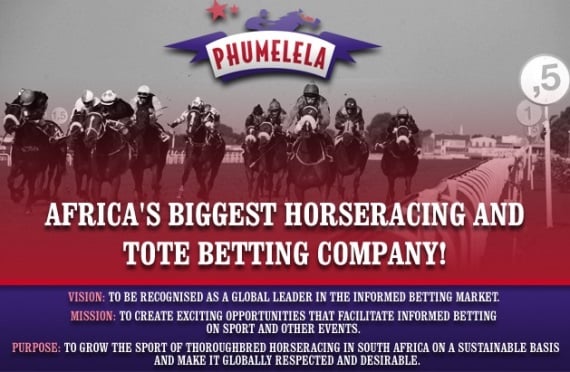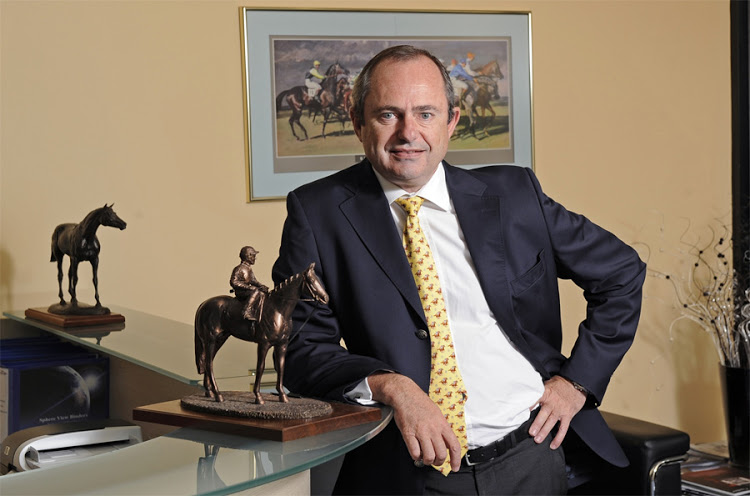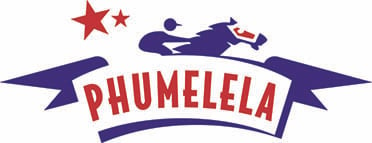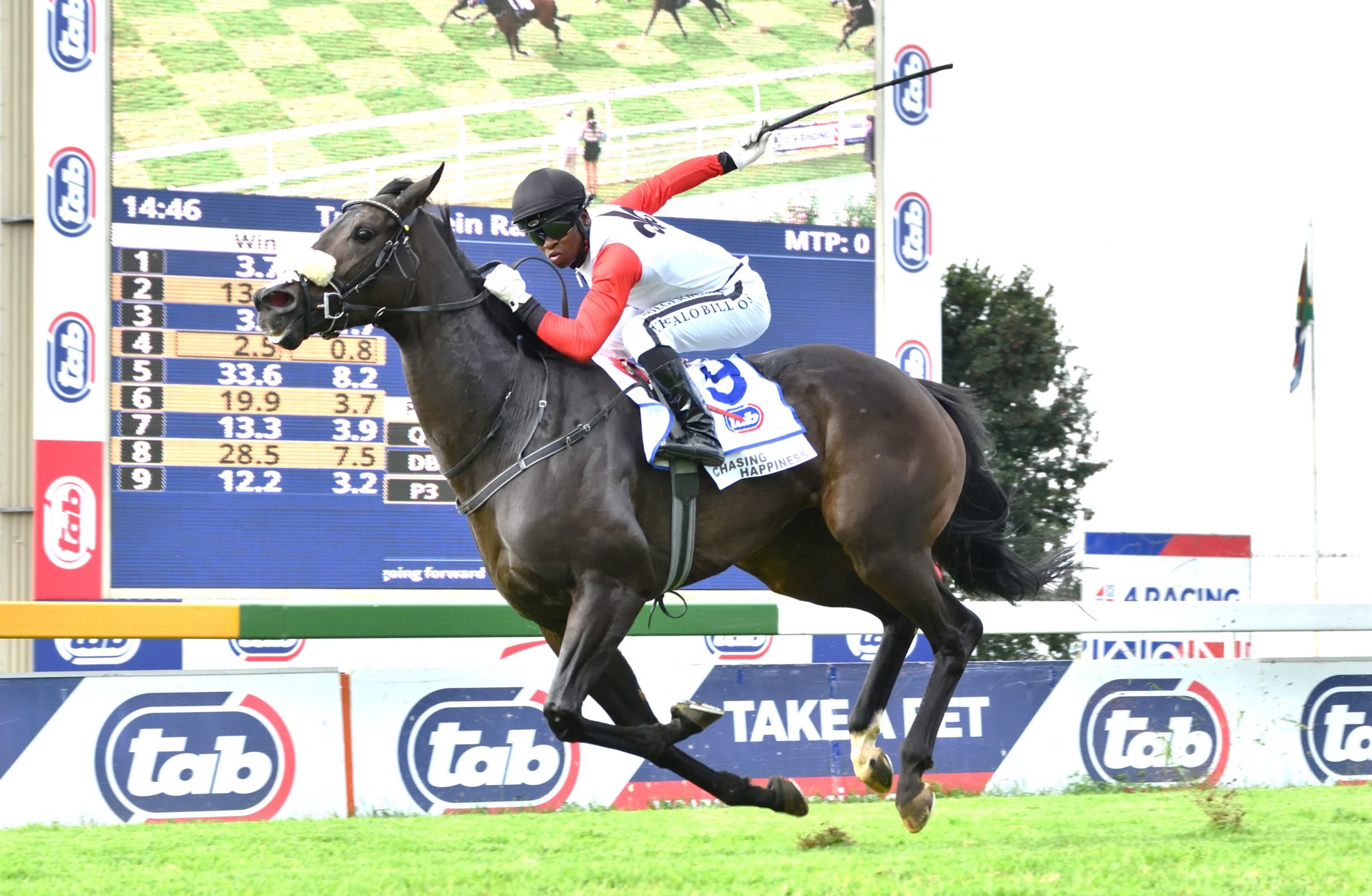As a JSE-listed company, Phumelela Gaming & Leisure takes strong exception to the slanderous allegations published in an article by a local racing publication regarding the “servicing” of the racing industry and accordingly reserves its rights in this regard.

A press release published on the Tabnews website suggests that the article is riddled with unsubstantiated allegations, half-truths and blatant inaccuracies.
The report continues:
To her credit, the author does admit to “not always being the fastest off the mark when it comes to things like this….”.
That statement seems to be the most trustworthy sentence in the entire article.
What makes matters worse is that the article is published at a time the horseracing industry faces its most challenging times, including destructive labour unrest which threatens the very existence of the industry.
There are numerous issues in the said article which need clarification.
First and foremost is the perception created that Phumelela executives are grossly overpaid by the misinterpretation of the figures as stated in the latest Phumelela Integrated Report 2017. Note the correct title of the report.
According to the local publication, the remuneration of the five Executive Directors and two Prescribed Officers “account for” R49.080 million “more than double the 2016 figure…”
The author conveniently ignores page 55 of the Integrated Report that clearly sets out Executive Directors’ remuneration at R27.374 million for the 2017 financial year – a marginal decrease on the previous year and less than 2% of the “net income” denominator preferred by the author.
Including long-term incentives, comprising share options, when reporting on directors’ remuneration is misleading.

Phumelela CEO Rian du Plessis
Furthermore, including deferred bonuses in “basic pay” is disingenuous and simply not a like for like comparison.
Phumelela provides executives and senior management with long term incentive plans in the form of share options approved by its shareholders from time to time. These options typically vest over a 3-year period conditional upon meeting certain hurdles i.e. a minimum compounded annual growth rate in headline earnings per share as well as an increase in share price.

In Phumelela’s case this earnings growth rate must equate to CPIX (inflation) plus 5% over the vesting period and a minimum compounded annual growth rate in the share price of 10% over the vesting period.
The value of share options exercised in the 2017 book year relate to options granted in 2013, the actuarial valuation/cost of which was written off in compliance with International Financial Reporting Standards – IFRS 2 ‘Share-based Payment’ over the 3-year vesting period effective from 1 October 2013. Including the value of share options exercised in 2017 in one lump sum is simply misleading for comparative analysis.

Phumelela clearly states that executive directors receive fixed salaries and benefits comparable with companies of a similar size. The opportunity to earn enhanced total compensation exists only if the performance targets set by the Remuneration Committee are met.
The policy adopted by the Remuneration Committee ensures that a significant proportion of the remuneration of executives is aligned with the achievement of corporate performance targets.
Reading the entire Integrated Report should clear up any confusion in this regard.
And further to this, bonus payments to executive directors in 2017 were in fact the outstanding 70% portion of bonuses earned and accrued for in the previous financial year.
These bonuses did not form part of FY2017 expenditure. This is quite clearly stated in Phumelela’s Integrated Report, but conveniently ignored.
As for staff remuneration, effective from 1 August 2016, basic salaries and wages were increased by an average 6% for management/executives and 8% for the balance of staff, a far cry from the substantial double digit increases reported by the author.
But let’s move on.

Larry Wainstein –
Regarding the increase in the stakes portion for trainers in “Phumelela country”, Larry Wainstein, CEO of the Racing Association, says it was a negotiated agreement.
“We have to be honest. The racing industry is under big pressure. Of all the role players in the industry, trainers are probably under the most financial pressure,” says Wainstein. “If we don’t help the trainers, we are jeopardising the future of the entire industry.”
According to Wainstein the main motivation for increasing the trainers’ portion of the stakes from 7% to 10% was to assist trainers with their cashflow.
Wainstein explains that trainers will now get 10% of stakes, jockeys will still get their allocated share and grooms will still get 1%.
“But that does not mean owners are now getting a smaller piece of the pie,” says Wainstein.
 “When trainers bill the owners at the end of the month, the increase in stakes that they have already received should be deducted from the owners’ bill. It gives the trainers some instant cash relief.”
“When trainers bill the owners at the end of the month, the increase in stakes that they have already received should be deducted from the owners’ bill. It gives the trainers some instant cash relief.”
According to Wainstein, only four trainers have so far not signed the new negotiated increase in trainers’ stakes.
“From the RA’s perspective, we expect the trainers to communicate the stakes changes to the owners. As far as we could ascertain, some trainers have been slack in doing so.”
According to Wainstein it’s actually sad that what should have been a great boost for the under-fire trainers is used as a lash by uninformed commentators to whip the RA.
Note: Among the few correct facts in the story is that Phumelela posted a net income of R1.552 billion in the 2017 financial year.
It should also be noted that no pay increases across the board – including directors – were given to any Phumelela staff in the 2018 financial year (1 August 2017 to 31 July 2018).
-Tabnews








